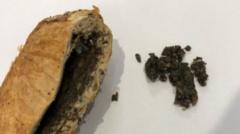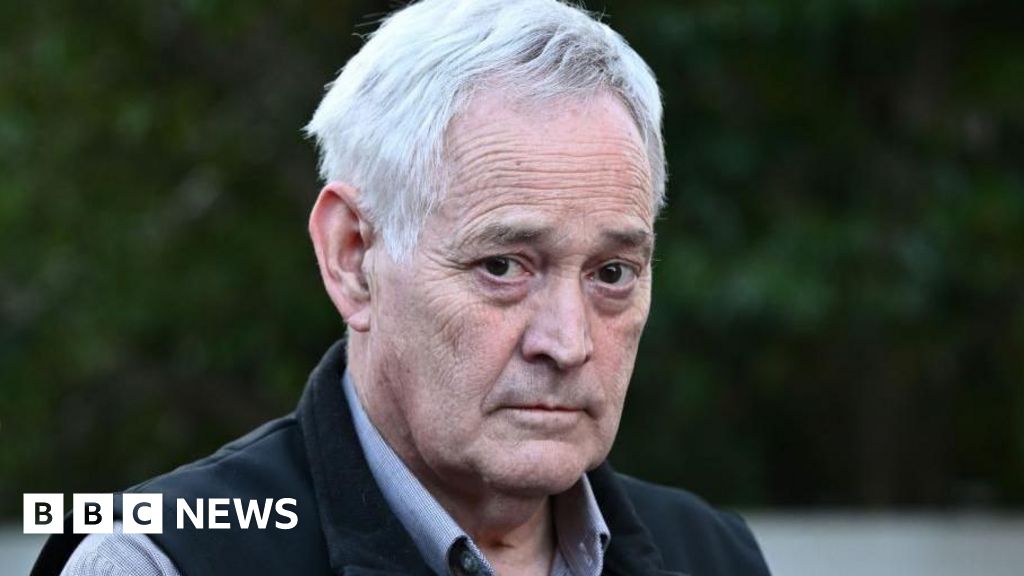In a dramatic conclusion to a high-profile trial, Erin Patterson, a 50-year-old from Morwell, Victoria, has been convicted by a jury of murdering three of her relatives via a toxic Beef Wellington meal laced with deadly death cap mushrooms. The court has also found her guilty of the attempted murder of a fourth person, her former in-law’s spouse, who survived the deadly meal served on July 29, 2023.
The case has garnered widespread attention both locally and internationally, with evidence suggesting that Patterson sourced the fatal mushrooms, despite her claims of purchasing them elsewhere. Three individuals tragically lost their lives shortly after the meal: Patterson's former in-laws, Don and Gail Patterson, both aged 70, and Gail’s sister, Heather Wilkinson, aged 66. Only Ian Wilkinson, Heather's spouse, managed to recover after extensive treatment.
In the aftermath of the verdict, the Supreme Court of Victoria has made publicly available around 100 images presented during the trial, including photographs of the meal’s leftovers collected from Patterson's residence. The remnants of the Beef Wellington meal were analyzed to identify the presence of the lethal death cap mushrooms.
Death cap mushrooms are infamous for being one of the most toxic species, responsible for numerous fatalities around the globe due to their potent toxins that remain hazardous even after cooking or processing. Initial testimonies revealed Patterson claimed she had purchased non-suspicious dried mushrooms from an Asian market in Melbourne but could provide no concrete details.
Investigative detectives uncovered that death cap mushrooms had been sighted in areas close to Patterson's home prior to the incident, as locals actively shared their finds on a plant-focused online platform. Furthermore, Patterson’s digital footprint indicated she had looked up death cap mushroom sightings and even made trips to nearby towns known for hosting these fungi.
The investigation yielded more troubling evidence, including digital images found on Patterson's phone purportedly showing death cap mushrooms. Despite her claims of ignorance regarding these hazardous fungi, traces of the toxic mushrooms were ultimately discovered in a food dehydrator she disposed of shortly after the incident. This act, coupled with CCTV footage showing her discarding the appliance, raised further suspicions about her guilt.
After feeling unwell two days post-meal, Patterson sought medical attention but initially resisted being admitted for further examination. Fortunately, her children tested negative for any toxic substances. The case has thus been marked by a series of bizarre turns and compelling evidence, leading to a conviction that has shocked and captivated audiences worldwide.
The case has garnered widespread attention both locally and internationally, with evidence suggesting that Patterson sourced the fatal mushrooms, despite her claims of purchasing them elsewhere. Three individuals tragically lost their lives shortly after the meal: Patterson's former in-laws, Don and Gail Patterson, both aged 70, and Gail’s sister, Heather Wilkinson, aged 66. Only Ian Wilkinson, Heather's spouse, managed to recover after extensive treatment.
In the aftermath of the verdict, the Supreme Court of Victoria has made publicly available around 100 images presented during the trial, including photographs of the meal’s leftovers collected from Patterson's residence. The remnants of the Beef Wellington meal were analyzed to identify the presence of the lethal death cap mushrooms.
Death cap mushrooms are infamous for being one of the most toxic species, responsible for numerous fatalities around the globe due to their potent toxins that remain hazardous even after cooking or processing. Initial testimonies revealed Patterson claimed she had purchased non-suspicious dried mushrooms from an Asian market in Melbourne but could provide no concrete details.
Investigative detectives uncovered that death cap mushrooms had been sighted in areas close to Patterson's home prior to the incident, as locals actively shared their finds on a plant-focused online platform. Furthermore, Patterson’s digital footprint indicated she had looked up death cap mushroom sightings and even made trips to nearby towns known for hosting these fungi.
The investigation yielded more troubling evidence, including digital images found on Patterson's phone purportedly showing death cap mushrooms. Despite her claims of ignorance regarding these hazardous fungi, traces of the toxic mushrooms were ultimately discovered in a food dehydrator she disposed of shortly after the incident. This act, coupled with CCTV footage showing her discarding the appliance, raised further suspicions about her guilt.
After feeling unwell two days post-meal, Patterson sought medical attention but initially resisted being admitted for further examination. Fortunately, her children tested negative for any toxic substances. The case has thus been marked by a series of bizarre turns and compelling evidence, leading to a conviction that has shocked and captivated audiences worldwide.

















